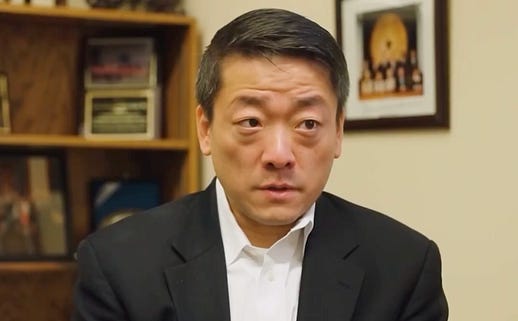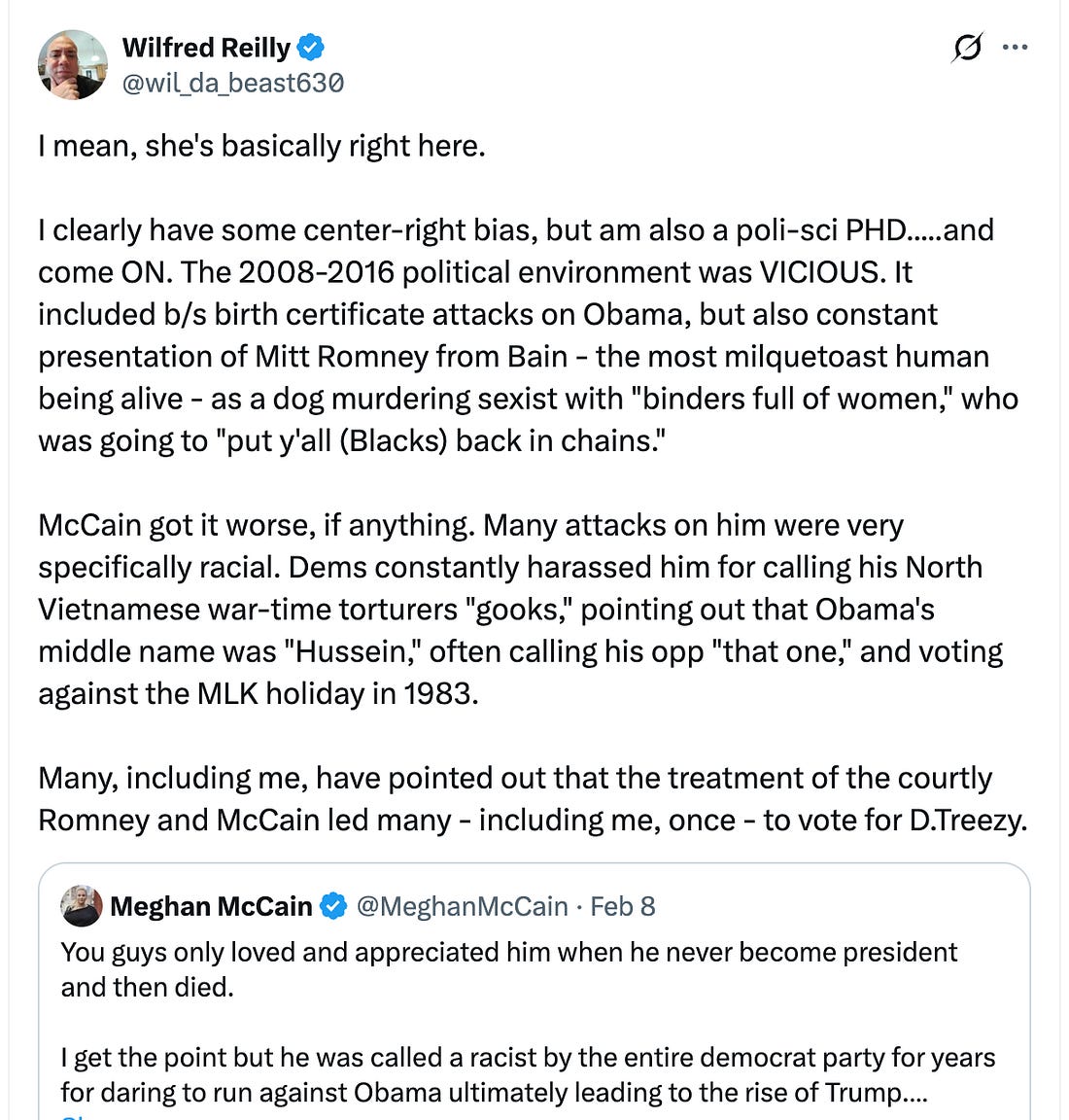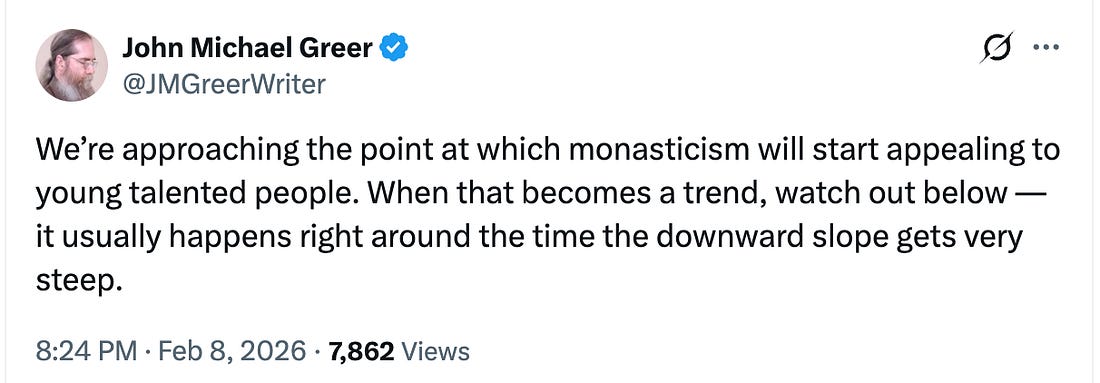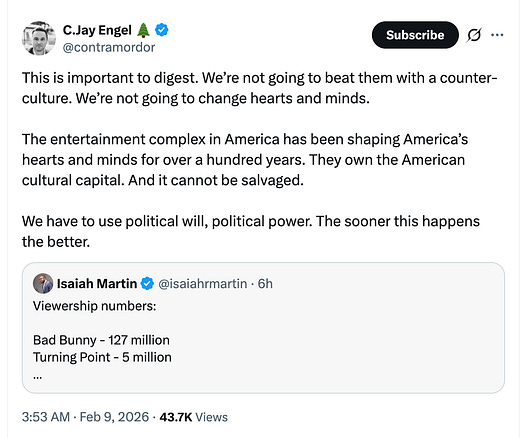What Unifies the Enemies of Civilization?
Socialism, environmentalism, scientism, relativism, dogmatism, and doomerism all have one thing in common.
Arjun Khemani, Logan Chipkin — Oct 11, 2024
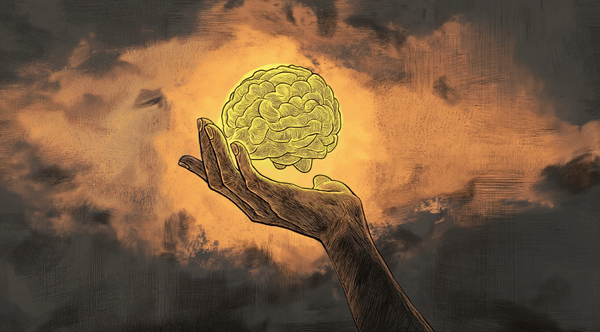
This article was excerpted from an upcoming documentary.
Summary: Anti-merit, authoritarian, collectivist ideas like socialism, environmental extremism, and doomerism are enemies of human progress because they impede innovation, limit personal freedom, and prevent societal growth. Fostering decentralized creativity, by contrast, improves the continued ability of human civilization to advance.
We have enemies.
Our enemies are not bad people—but rather bad ideas.
Our enemy is stagnation.
Our enemy is anti-merit, anti-ambition, anti-striving, anti-achievement, anti-greatness.
Our enemy is statism, authoritarianism, collectivism, central planning, socialism.
Our enemy is bureaucracy, vetocracy, gerontocracy, blind deference to tradition.
Our enemy is corruption, regulatory capture, monopolies, cartels.
Our enemy is institutions that in their youth were vital and energetic and truth-seeking, but are now compromised and corroded . . . blocking progress in increasingly desperate bids for continued relevance, frantically trying to justify their ongoing funding despite spiraling dysfunction and escalating ineptness.
Our enemy is the ivory tower, the know-it-all credentialed expert worldview, indulging in abstract dogmas . . . luxury beliefs, social engineering, disconnected from the real world, delusional, unelected, and unaccountable—playing God with everyone else’s lives, with total insulation from the consequences.
Our enemy is speech control and thought control—the increasing use, in plain sight, of George Orwell’s “1984” as an instruction manual . . .
Our enemy is the Precautionary Principle, which would have prevented virtually all progress since man first harnessed fire. The Precautionary Principle was invented to prevent the large-scale deployment of civilian nuclear power, perhaps the most catastrophic mistake in Western society in my lifetime. The Precautionary Principle continues to inflict enormous unnecessary suffering on our world today. It is deeply immoral, and we must jettison it with extreme prejudice.
Our enemy is deceleration, de-growth, depopulation—the nihilistic wish, so trendy among our elites, for fewer people, less energy, and more suffering and death . . .
We will explain to people captured by these zombie ideas that their fears are unwarranted and the future is bright.
We believe we must help them find their way out of their self-imposed labyrinth of pain.
We invite everyone to join us . . .
The water is warm.
Become our allies in the pursuit of technology, abundance, and life.
—Marc Andreessen, The Techno-Optimist Manifesto
Although our society is becoming more dynamic over time, some creativity-suppressing memes that had dominated our static ancestors survive to this day, albeit under different guises. As we saw, those memes ensured that societies like Sparta made practically no progress at all. Thankfully, in our time, such memes don’t stop us from improving our lives and the world more broadly. But they do slow us down, and if left unchecked, they could come to dominate our dynamic society and revert it back to the static societies of old. We, therefore, have a duty not only to recognize them for the threat that they are but to do everything in our power to eradicate them entirely.
Socialism advocates for centralized institutions, like States, to take the means of production away from citizens against their will. Socialists falsely assume that States can better allocate wealth in the form of consumer goods and services better than the private sector. But in the absence of free markets, States cannot determine prices and so cannot discover how resources can be best allocated. Resources like wood and gold could go toward producing all sorts of consumer goods, and market prices signal to entrepreneurs which resources should go into producing which consumer goods. That is, entrepreneurs use prices to “calculate” whether or not a particular venture will improve consumers’ lives. For instance, entrepreneurs might want to buy wood to build houses that they wish to sell. But they can only determine whether such a venture is profitable—that is, if it makes people better off—if they know the prices of the wood they’d buy and the houses they’d sell. But centralizing all of society’s resources into the hands of a single institution obliterates the possibility of prices. As economist Ludwig von Mises wrote, “The paradox of ‘planning’ is that it cannot plan, because of the absence of economic calculation. What is called a planned economy is no economy at all. It is just a system of groping about in the dark. There is no question of a rational choice of means for the best possible attainment of the ultimate ends sought. What is called conscious planning is precisely the elimination of conscious purposive action.”
The impossibility of socialist-style central planning came to light in 1989, when Boris Yeltsin, then the president of the Soviet Union, visited a grocery store in the United States. Back in Russia, people waited in line for food and other goods, but in the capitalist United States, Yeltsin could buy as much of any of the countless items he wanted, and the lines were nothing like they were back home. In recognition of the stark contrast, Yeltsin told some Russians who were with him that if Russians saw what American supermarkets were like, “there would be a revolution.”
Many socialists think that wealth is a fixed pie. They see rich people and poor people and think that such inequality is unfair or unjust. Because they think wealth is fixed, they are sure that the moral thing to do is to forcibly transfer wealth from the rich people to the poor people. They think that the State ought to do such things—hence, they want the State to own the means of production, use them to create goods and services, and allocate them in a fair and just way to the people.
But wealth is not a fixed pie. Mankind was born into utter poverty, and now billions of people are wealthy enough to have the free time to read articles such as this one. So, yes, poverty is a tragedy. But with enough progress, we can all become as wealthy as today’s billionaires—indeed, most modern Westerners are wealthier than the kings of old, who died of diseases we’ve long since cured and who lacked basic comforts such as air conditioning.
The answer to poverty is not socialism, which only makes it more difficult to create more wealth. But trends indicate that young people in the West don’t know that—an Axios poll showed that 41 percent of American adults in 2021 held favorable views toward socialism.
Extreme environmentalism, or the so-called degrowth movement, aims to minimize humanity’s environmental impact by having fewer children, consuming less energy, and releasing less carbon into the atmosphere. As documented in a June 2024 New York Times article, anthropologist and prominent degrowth advocate Jason Hickel once wrote, “Degrowth is about reducing the material and energy throughput of the economy to bring it back into balance with the living world, while distributing income and resources more fairly, liberating people from needless work, and investing in the public goods that people need to thrive.”
The author of the New York Times piece, Jennifer Szalai, further writes, “The distinctive argument that Hickel and other degrowthers make is ultimately a moral one: ‘We have ceded our political agency to the lazy calculus of growth.’”
But there is nothing moral about slowing down growth for the planet’s sake or of rebalancing our relationship with nature. Growth is not some abstract thing that greedy capitalists have made a deity of. Growth means more wealth for people in the form of lifesaving and life-enhancing technologies, from shelter to protect us from the violent forces of the Earth to mass food production to bring starvation to an all-time low.
Some environmentalists are willing to sacrifice the well-being of humans for the sake of the Earth and its nonhuman inhabitants. But they fail to appreciate that it is only humans who stand a chance at saving the planet and every species in existence! After all, the sun will eventually engulf the Earth, and most species have gone extinct, never mind what humans have done. But only humans are capable of developing the technology to protect the Earth from the sun’s death and revive any species we so choose. This might sound like science fiction, but already we deflect asteroids from the Earth and create cells with synthetic genomes. The gap between those feats and the ones you think are science fiction is not insurmountable—but human civilization will need to grow to achieve them.
So, even by the environmentalists’ own standards, people are the primary moral agent in the world. Any side effect we cause can, in principle, be reversed in the long run. Incidentally, the primacy of people serves as a devastating criticism against those who advocate that we have fewer children—after all, more people means more creativity and more boundless potential to make progress.
And if something like climate change is judged by its effects on people, things have never been better thanks to growth. The Earth doesn’t care about us—but we care about each other. As philosopher Alex Epstein notes, “If you review the world’s leading source of climate disaster data, you will find that it totally contradicts the moral case for eliminating fossil fuels. Climate-related disaster deaths have plummeted by 98 percent over the last century, as CO2 levels have risen from 280 ppm (parts per million) to 420 ppm (parts per million) and temperatures have risen by 1°C.”
Yes, fossil fuels have changed the Earth. But they’ve also given us enough energy to create solutions to an uncountable number of problems, including developing safe, manmade environments that shield us from Mother Earth’s dangers. Degrowth would rob us of such creations and leave us cold, dark, and vulnerable. “On a human flourishing standard,” Epstein writes, “we want to avoid not ‘climate change’ but ‘climate danger’—and we want to increase ‘climate livability’ by adapting to and mastering climate, not simply refrain from impacting climate.”
You may laugh at those environmentalists who throw paint at art, but they’ve been effective at halting the development of nuclear power, a potential source of abundant energy that we’ve known how to build for decades. We can’t calculate how much suffering could have been ameliorated had we been free to build nuclear power plants across the Earth.
Scientism is the false idea that scientific knowledge trumps all other kinds of knowledge—that science alone can answer all our questions. But moral, economic, political, and philosophical problems can’t be answered by science alone. This is why the phrase “follow the science,” as we heard so often during the 2020 pandemic, doesn’t make sense. Scientific knowledge can inform our choices, but it alone cannot tell us what to do next, either in our personal lives or in politics more widely. For instance, science might offer us an explanation for how and why COVID-19 spreads, the conditions under which masks reduce spread, and the effect of age and body fat percentage on the risk of infection. But science cannot tell us whether the trade-offs associated with government-mandated lockdowns are worth it, whether the government should invest public funds into drug companies for the development of a vaccine, whether all questions pertaining to a pandemic should be left to the most local level of government or to the most global level of government, whether a grandparent ought to risk infection to visit his grandchildren, or whether a businessman should run an underground (and illegal) speakeasy during lockdowns so that he can afford rent. The answers to such questions require more than just scientific knowledge—they require political, economic, and moral knowledge. Knowledge about what one ought to want in life, knowledge about the trade-offs involved in our decisions, knowledge about the intended and unintended consequences of governmental policy, knowledge about legal precedent, and knowledge about what our political institutions are capable of doing. None of this could possibly be found in a science textbook. Those who claim otherwise are guilty of the sins of scientism.
As the Nobel Prize–winning economist F. A. Hayek, inventor of the term “scientism,” wrote, “It seems to me that this failure of the economists to guide policy more successfully is closely connected with their propensity to imitate as closely as possible the procedures of the brilliantly successful physical sciences—an attempt which in our field may lead to outright error. It is an approach which has come to be described as the ‘scientistic’ attitude—an attitude which . . . is decidedly unscientific in the true sense of the word, since it involves a mechanical and uncritical application of habits of thought to fields different from those in which they have been formed.”
But if we cannot acquire moral, economic, or political knowledge via the methods that work so well in physics, how do we get such knowledge? The same way we always do: by conjecture and criticism. We guess what the right policy is, how we ought to act in the world, and how the economy works. And we criticize all those guesses—maybe not with the rigorous experiments we conduct in the physics laboratory, but experimentation is just one way of criticizing ideas.
Ironically, with the staggering advances made in the hard sciences over the past century, scientism has been on the rise. Quite simply, people think that they can take science’s successes and carry them over into every other field of human endeavor. In political and cultural battles, it is often thought that he who knows the most science must be in the right. If only we put the most scientifically minded people in charge of the world, it is thought, then they could solve all our problems from on high. But science alone cannot tell us whether children have a right to take hormone blockers, whether circumcision should be legal, or how long patents should last. That is no reason to despair—with or without the microscope, we can continue to make progress with creative guessing and criticizing.
Relativism comes in many forms, but perhaps the most dangerous is moral relativism—the idea that there is no difference between right and wrong or good and evil. “Who’s to say who is in the wrong?” the relativist ponders high-mindedly. “What Hamas did to Israel on October 7th is barbaric, but we must end this cycle of violence,” a relativist would say, implicating both sides. “Russia may have invaded Ukraine, but Ukraine is conscripting its own citizens. Therefore, both sides have committed wrongdoing.” “If Hitler was a villain for his genocide, then so was Churchill.”
Relativism might seem open-minded and fair, but it is neither. For it is not open to the possibility that one party is in the right and the other in the wrong. It is not open to the idea that one society is open and dynamic and the other closed and static. It is not open to the notion that one country cherishes life while the other worships death. Nor is relativism fair—the relativist does static societies no favors by denying that they could become as prosperous as dynamic ones should they choose to do so. In their own way, relativists trap evil under the weight of their own suppressive culture when they could have cleansed it with the light of better ideas. And the relativist distorts the self-confidence of dynamic, progressive societies by muddying their understanding of why they’re so successful in the first place, mitigating their ability to make even further progress and spread the right ideas to static societies. The relativist is no highfalutin hero—he keeps evil on life support long past its expiration date.
Perhaps relativism is thriving in the West right now because people can afford to make such an egregious error. But not forever. For the enemies of the West are the enemies of civilization more broadly. They will not stop their anti-human ambitions, no matter how much relativists deny that that is what they are. Nor will it be relativists who ultimately stand up to them but rather those who distinguish between right and wrong, stasis and progress, victory and defeat.
Dogmatism refers to an idea that is considered, implicitly or explicitly, uncriticizable. The final truth. Known with certainty. Never to be changed. People tend to associate religious doctrines with dogmatism, but the connection is not a necessary one. After all, some religions have evolved to cohabitate with the rapid progress we’ve undergone since the Enlightenment (to be sure, other religions, tragically, have not yet done so—and whenever someone admits to “taking something on faith,” dogmatism is surely at work). But dogma is not confined to the cathedral. For instance, many political ideologies are thought to have perfect foundations by their adherents. And even in science, our best theories could, in principle, spread by dogmatic means. Karl Popper described Sigmund Freud’s psychoanalysis as dogmatic. As philosopher Bryan Magee described psychoanalysts, “We should not . . . systematically evade refutation by continually reformulating either our theory or our evidence in order to keep the two in accord. . . . Thus they are substituting dogmatism for science while claiming to be scientific.” Even in the hard sciences, we could imagine a world in which people are not persuaded that Albert Einstein’s theory of relativity is true but rather are pressured to accept it as an uncriticizable foundation of our scientific worldview.
Because all our ideas contain errors, dogmatism always prevents us from improving on the ideas locked in dogma’s cage. Couple that with the fact that any error, no matter how small, could result in the eventual extinction of the human race, and we have good reason to rid our society of all dogmatic elements.
Doomerism is the idea that humanity has no shot at continuing to make progress, or that our extinction is just around the corner, or that we are uniquely vulnerable to being wiped out today, or that we are just one innovation away from guaranteeing our decline.
This attitude neutralizes the human spirit—after all, if humanity is sunk, why bother trying in the first place?
One of the primary examples of doomerism today is the debate over artificial intelligence. Some think that if we just keep innovating, we will eventually create an entity that is more intelligent and/or powerful than people could ever be and that we will fall to the status of slaves or animals beneath its feet. First, if the machine is not creative, it will be precisely as obedient as our microwaves are. And any unintentional side effects of AI can be accounted for with safety measures, as are currently being developed for self-driving cars. Second, if we do end up creating a machine that is as alive as we are—a so-called artificial general intelligence, or AGI—it is no more rational to assume that it will pursue our destruction as it is to assume that new humans will do so. New humans—namely children—are raised to adopt the values of the culture around them. Of course, sometimes they rebel, especially when adults force them to do things they don’t want to do. Therefore, the problem of how to integrate an AGI into our society is the same as the problem of how to raise children into happy, productive adults—and we’ve been improving at that for centuries.
Another dangerous effect of doomerism is tyranny, whether through cultural taboos, governmental regulations, or outright bans. They all amount to slowing the growth of knowledge and wealth, and of progress more generally. For if the next innovative step marks our doom, then surely a little—or a lot—of tyranny is justified! But innovation is the very panacea that doomers are worried about. It is stasis, not change, that will mark our end.
Moreover, we might choose to slow ourselves down, but the bad guys won’t. So there’s no world in which AI doesn’t continue to progress. But there is a world in which the bad guys get a hold of novel technologies before we do—and, with it, the end of our sustained Enlightenment.
So socialism, environmentalism, scientism, relativism, dogmatism, and doomerism have all earned their bona fides as enemies of civilization. In one way or another, they curb our ability to make progress, a stain on the project that is humanity. But is each stain a unique color, or do they come from the same poisonous ink jar?
Indeed, all memetic enemies of civilization have one thing in common: They slow the growth of knowledge.
This article was excerpted from an upcoming documentary.










